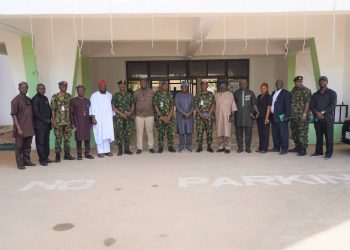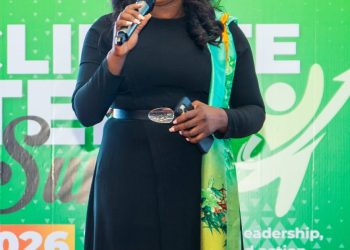By Nkechi Eze
The Executive Chairman of the Economic and Financial Crimes Commission (EFCC), Mr. Ola Olukoyede, has called for deeper collaboration and stronger understanding among stakeholders in order to achieve sustainable success in the fight against corruption and economic crimes in Nigeria.
Olukoyede, who spoke on Wednesday, September 24, 2025, at the EFCC–Media/Civil Society Organisations Capacity-Building Workshop held at the Commission’s headquarters in Jabi, Abuja, emphasized that partnership with the media and civil society is indispensable. Represented by the Director of the Public Affairs Directorate, Commander of the EFCC, CE Wilson Uwujaren, the Chairman likened the synergy between the media and CSOs to the two ears of a horse, stressing their shared mandate in exposing financial crimes and integrity deficits across the country.
“The media and civil society organisations, no doubt, are very critical to the work of fighting every form of economic and financial crimes and other acts of corruption. The nexus between the media and civil society organisations is very strong. They are like the right ear and left ear of the same horse. This is why the Commission considered it imperative to bring these stakeholders together in a capacity-building workshop,” he said.
Olukoyede explained that the discussions focused on operational, legal, and media-related issues that will not only broaden stakeholders’ knowledge but also strengthen public appreciation of EFCC’s work. “Equally important is the role of the media and CSOs in driving the preventive framework of the Commission. It is believed that discussion of these germane topics will broaden and widen their understanding and public grasp of how they are being tackled by the EFCC,” he added.
He stressed that the EFCC’s commitment to stakeholder engagement is absolute, underscoring that “public ownership of the fight against corruption remains the most potent and enduring modality of driving and sustaining the fight.” He further declared, “Without fear or favour and in taking such a route, corruption is bound to fight back. By whatever means the fight back is designed, we cannot be rattled or intimidated. As far as we are concerned, right is might, and as it is often said, conscience is an open wound, only the truth can heal.”
Other senior officials of the Commission also addressed the workshop. Commander of the EFCC, CE Dr. Ben Ubi, a Director in the Legal and Prosecution Department, highlighted the challenges of prosecuting financial crimes in Nigeria but affirmed that the painstaking efforts of the Commission under the Chairman’s leadership had helped remove Nigeria from the list of non-cooperating countries and territories of the Financial Action Task Force (FATF). “If not for the efforts of the EFCC, Nigeria would have long been blacklisted,” he stated.
On the growing menace of cryptocurrency fraud, an officer from the Cybercrime Section of the Commission, Sam Agbi Enahoro, warned participants against falling prey to deceptive online schemes. He explained the technicalities of crypto transactions and how fraudulent dealings are creeping into the space. He cautioned: “Please, stay away from unrealistic and jumbo offers. When it is too good to be true, don’t do it.”
Speaking on the role of the media and CSOs in driving preventive frameworks, EFCC Spokesperson and Head of Media and Publicity, Deputy Commander of the EFCC, DCE Dele Oyewale, underscored the centrality of prevention. He reminded participants of the Chairman’s October 2023 policy shift which placed emphasis on safeguarding public resources before they are looted. “If we wait until the money is stolen, the assets are stolen, and everything is stolen before we now embark on recovery, there is no way you can recover all. But if there are modalities in place that safeguard the money and prevent looting of the treasury, then we save the society from these losses,” he explained.
The Chief of Staff to the EFCC, CE Micheal Nzekwe, also commended the media and civil society for their invaluable contributions to the anti-graft campaign. “Nigeria is the greatest beneficiary of the work that we all do. Sometimes there can be pressures here and there, but in all of that, always put the nation and the EFCC first,” he urged.
The workshop, which brought together journalists, civil society leaders, and EFCC officials, reinforced the Commission’s resolve to strengthen partnerships, sharpen preventive mechanisms, and build a collective front against corruption.













